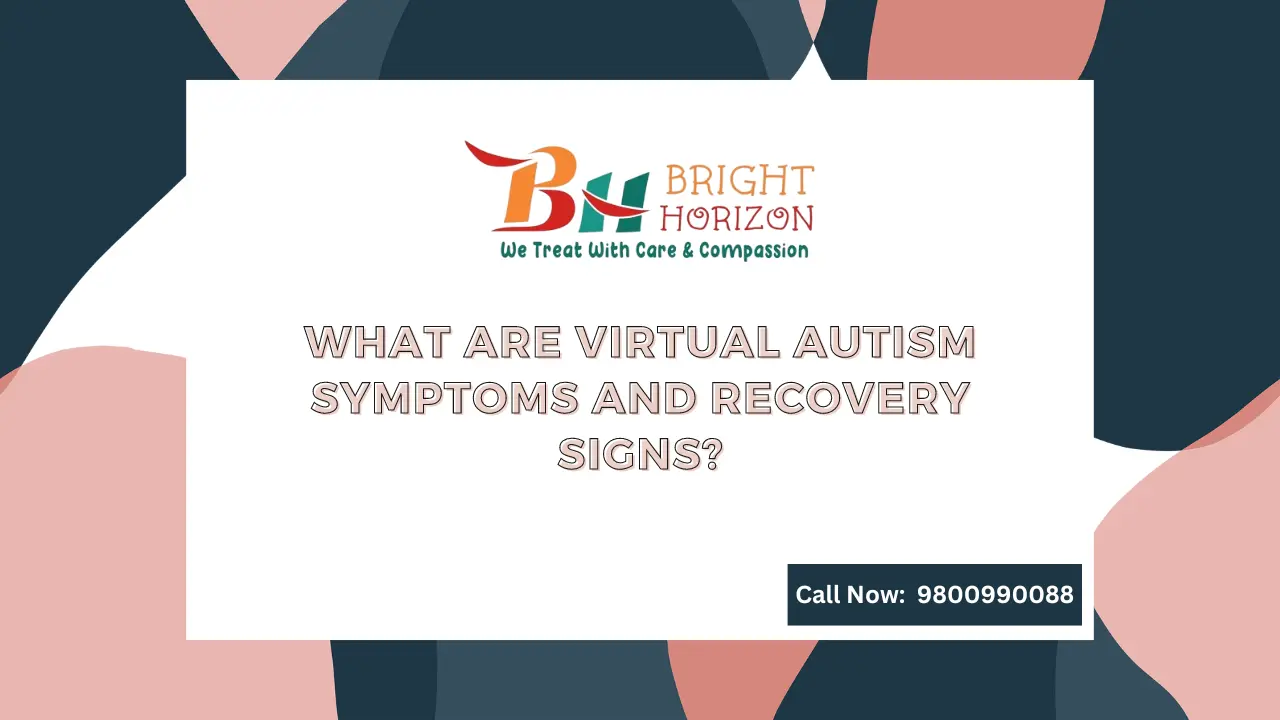Virtual autism is a kind of autism spectrum disorder found in children who spend most of their time in computer games or social media. It includes the social and communication difficulties developing from excessive screen time and virtual interactions. In this blog post, we’ll discuss virtual autism symptoms, recovery signs and more.
Overview of Virtual Autism
The term “virtual autism” describes the excessive use or misuse of electronic devices by children. It can result in social isolation, behavioural challenges, and hindered emotional development. Therefore, it is crucial to get treatment for your child if you observe that your child is struggling with virtual autism.
You can call us or WhatsApp for More Details @ our Customer Care Number +91-9800-9900-88
The cases of virtual autism have increased because of the increasing popularity of video games and social media platforms among children. The accessibility and increased use of these digital platforms have contributed to increased screen time and its effect on the social and communication skills of children.
What are Virtual Autism Symptoms?
Children with virtual autism often face difficulty with interpreting non-verbal social cues, maintaining eye contact, showing suitable facial expressions, and participating in reciprocal conversations. These social interaction challenges can stop their ability to create and maintain relationships. Moreover, excessive screen time can contribute to behavioural issues, such as irritability aggression, and impulsivity. Sleep disturbances are also common among children who spend more time on virtual or digital platforms.
Identifying the common signs of virtual autism is crucial for addressing challenges associated with excessive screen time. By understanding the signs and effects of virtual autism, parents can take proactive steps to encourage a healthy balance between virtual interactions and real-world social experiences. If you notice that your child is spending more time on digital platforms, then you can bring your child to Bright Horizons where use different techniques and therapies to overcome these challenges.
Intervention and Therapy for Virtual Autism
Identifying virtual autism needs early intervention and targeted therapy to help children with their social and communication difficulties. In addition to this, minimizing screen time and encouraging real-life interactions are crucial strategies for effectively managing virtual autism.
Importance of early intervention
Early intervention is important for supporting children with virtual autism. Addressing challenges early on can lead to better results. Starting intervention as soon as possible allows the implementation of tailored strategies to help children develop vital social and communication skills.
Approaches to Targeted Therapy
Targeted therapy approaches at Bright Horizons are designed to manage the specific challenges related to virtual autism. Our behaviour therapist for autism can help your child improve behaviours. Our therapies include behavioural therapies, and speech and language therapy. Therapists at Bright Horizons work closely with children to use personalized strategies to improve their social interactions and communication skills.
Reducing Screen Time and Promoting Real-Life Interactions
Reducing screen time and promoting face-to-face interactions are crucial aspects of virtual autism intervention. Excessive screen time can stop social development and communication skills. Setting limits on screen time and providing opportunities for real-life interactions can help children with virtual autism enhance their social skills, build meaningful relationships, and improve their overall well-being.
Virtual Autism Recovery Time
Each child is unique, as are their families. The way a child interacts with their environment, family members, peers, toys, etc., varies. Therefore, recovery time may vary from one child to another.
Virtual Autism Recovery Signs
The child begins to show interest in playing activities, makes eye contact during conversations, starts speaking or demonstrates visible improvement in speech, uses hand gestures while showing something, and takes self-initiated efforts while interacting with others.
Conclusion
If your child is addicted to digital platforms and he/she has started spending more time on these digital platforms, then it’s the right time to seek help from Bright Horizons where we have experienced therapists that use trusted and tested techniques and therapies to overcome these challenges.
You can call us or WhatsApp for More Details @ our Customer Care Number +91-9800-9900-88
Other Useful links:

